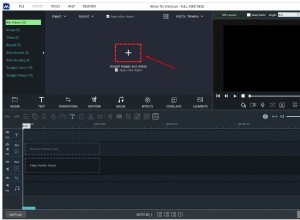”لا أكره! لا خوف! الجميع مرحب به هنا! لا كره. لا خوف! الجميع مرحب به هنا! "
هذا هو الترنيمة التي يرددها طفلي البالغ من العمر 5 سنوات. نحن لا نحتج أو نتجمع ، بل نقوم فقط بأشياء يومية عادية ، مثل التسوق من البقالة ، وهذا ما يدور في ذهنه.
عندما أسمعه يهتف أو يلعب دور الناشط ، فأنا فخور به في نفس الوقت وأحزن قليلاً لأن دماغه يعمل وقتًا إضافيًا في محاولة لمعرفة ما يجري في عالمنا.
أطفالنا يراقبون ويتعلمون منا. هدفي هو أن أظهر لأولادي أننا ندافع عن الأشياء التي نؤمن بها وأن لديهم القوة أيضًا للدفاع عما يؤمنون به.
فيما يلي بعض النصائح المفيدة التي تعلمتها على طول الطريق للتنقل في هذه المياه الصعبة أحيانًا.
دع الأطفال يتحدثون ويستمعون إليهم بالفعل.
لقد علمت الأجيال الماضية الأطفال أن يُنظر إليهم ، لا أن يُسمعوا. يعرف آباء اليوم أن منح الأطفال المنافذ المناسبة للتحدث وطرح الأسئلة سيمنحهم الأدوات والثقة التي يحتاجونها للدعوة إلى عالم أفضل.
يبدأ تعليم الأطفال أن أفكارهم وأفكارهم مهمة من البداية. شجعهم على المشاركة كثيرًا. قم بإجراء حوار هادف ومناسب للعمر معهم.
علم الأطفال التفكير النقدي والبحث عن الإجابات.
كل والد يختبر حفرة أرنب 1000 سبب.
Instead of going down that rabbit hole, coach your inquisitive activist on how to find answers. This may be a trip to the library, a Google search or a call to knowledgeable community members. Help them gather information and then flip the Q&A around on them. Ask them questions such as:What do you think the answer is? Are there any other possible answers? Did you find anyone who disagrees with you? How did you make up your mind?
The goal is for them realize that “why?” or “how?” can have many answers, and that the one handed to you is not always the right one.
Teach them about privilege, equity and empathy.
In the last few years, we have been submerged in a world that seems unfamiliar to so many of us. After hundreds of discussions about the change we want to see in the world, a few major themes seem to have emerged. The ideas of privilege, equity and empathy all go hand in hand.
Privilege is not a bad word; we all have some level of it. This concept is actually pretty easy for kids to understand. Everything they have is because they were born into a certain family, in a certain neighborhood, with a certain ethnic identity. It is the purest form of privilege and we can talk about that without making them feel ashamed. They can enjoy their home, their toys, their experiences. At the same time they can realize there are kids born to different families who do not have those same joys through no fault of their own.
As they get older, expanding the idea of privilege to everyone in our community will help them see the inequities and have empathy for those who do not have those same opportunities.
Growing that empathy for those at a different level of privilege is a powerful, and necessary, accelerator to activism. You have to see the inequities, understand the pain caused by them and then see the necessity to change to create equitable policies, ideas and actions.
Teach the idea that equity for everyone only helps our communities grow stronger.
Be an activist with them and show them their own power.
Lead by example. Talk with kids about what issues are important to you and how you plan on advocating for them. Then take them on the journey with you. Meet with your legislators, go to rallies and marches, engage in conversations with others. As they form their activist identity, facilitate and encourage their involvement. Keep track of their progress and keep them motivated, because activism is a lifelong habit with rewards that are often not immediate.
Help kids see the small victories and the positive lessons in failure. Then teach them to get up the next day and do it all over again. لماذا ا؟ Because we need them.






